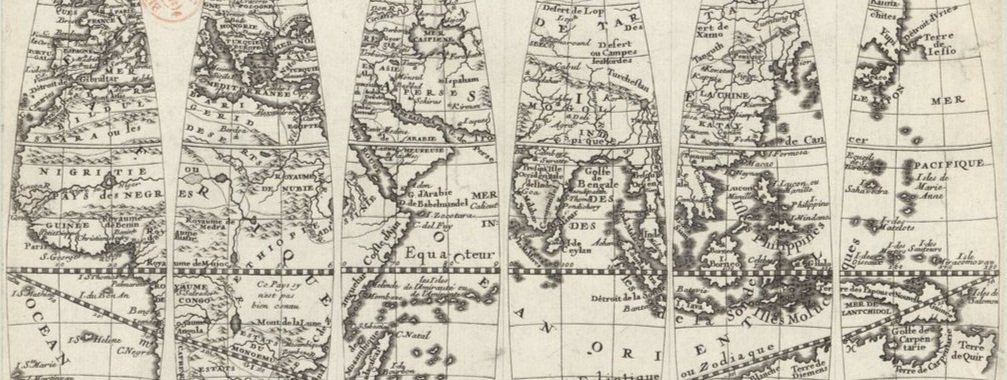
Crafting Enlightenment
A groundbreaking volume examining the transnational conditions of the European Enlightenment, Crafting Enlightenment argues that artisans of the long eighteenth century on four different continents created and disseminated ideas that revolutionized how we understand modern-day craftsmanship, design, labor, and technology. Starting in Europe, this book journeys through France across the Atlantic Ocean to the Americas and then on to Asia and Oceania. Highlighting diverse identities of artisans, the authors trace how these historical actors formed networks at local and global levels to assert their own forms of expertise and experience. These artisans—some anonymous, some outside the margins, and others eminent—translated European Enlightenment thinking into a number of disciplines and trades including architecture, botany, ceramics, construction, furniture, gardening, horology, interior design, manuscript illumination, and mining.
In each thematic section of this illustrated volume, two leading scholars present contrasting case studies of artisans in different geographic contexts. These paired essays are followed by shorter commentary that reflects on pertinent themes from both contributions.
Emphasizing how and why artisanal histories around the world impacted civic and private life, commerce, cultural engagement, and sense of place, this book introduces new richness and depth to the conversations around the ambivalent and fragmented nature of the Enlightenment.
This project developed from a colloquium titled “Artisanal Praxis and State Power” that was hosted by the Research and Academic Program at the Clark Art Institute in December 2017.
Contents:
Lauren R. Cannady and Jennifer Ferng, Introduction: assembling artisanal identities across geographies
I. Envisioning artisanal histories
Chandra Mukerji, Sovereign Sun King
Emine Fetvaci, Visualizing urban festivals in the Ottoman Empire: a comparison of the sixteenth and eighteenth centuries
Richard Taws, Telling artisanal time
II. Collaborative objects
Frédéric Dassas, The secret to success: urbanization and luxury decoration at the place Louis-le-Grand
Dennis Carr, The Spanish colonial world in microcosm: a Puebla desk-and-bookcase
Florina H. Capistrano-Baker, Artisanal agency, anonymity, and power
III. Religion and the commerce of empire
Neil Kamil, Mark of disgrace or matter of politeness? Materiality, trust, and expectation in early-eighteenth-century Virginia
Lauren R. Cannady, Interregna: the Société des arts and the scale of time
Thomas Crow, Confessional complications in maritime trade
IV. Corporeal ecologies
Sugata Ray, A “small” story of the jasmine flower in the age of global botany
Dorothy Ko, Fire walk with me: tales of artisanal body (parts) and innovation in early modern China
Nancy Um, Grounded terrains and vertical landscapes in eighteenth-century Asia
V. Enlightenment technologies
Valérie Nègre, Craft knowledge in the age of encyclopedism
Jennifer Ferng, Miniature domination: mining the worlds of goldfields jewelry and emu eggs
Kaijun Chen, Artisans as thinkers in the early modern world
Summaries
Bibliography
Index
Lauren R. Cannady and Jennifer Ferng, Crafting Enlightenment: Artisanal Histories and Transnational Networks Oxford University Studies in the Enlightenment (Liverpool: Liverpool University Press, 2021)
New Books Network Podcast
New Books in Intellectual History, December 2021
Reviews
Reviewed by Dominic Bate in Journal of British Studies, July 2023
Reviewed by Marco Storni in Technology and Culture, July 2023
Reviewed by Sarah R. Cohen in The Art Bulletin, March 2023
Reviewed by Jason Nguyen in Journal of the Society of Architectural Historians, September 2022
Crafting Enlightenment: A Review by Katie Scott in Journal18, June 2022
Reviewed by David Andress in French Studies, April 2022
Public Presentation
“Making Time: Competition and Collaboration in Early Modern European Artisanal Networks,” Keynote Lecture, Skillful Hands: Apprentices and Networks of Learning, 1650-1950, Rienzi Symposium, Museum of Fine Arts, Houston, November 2024
Header Image: Detail from Nicolas Bion’s Globe terrestre sur lequel les principaux points sont places sur les […] observations […] de l’Académie royale des Sciences, c.1694, engraving. Gallica, Bibliothèque nationale de France. Public Domain.
